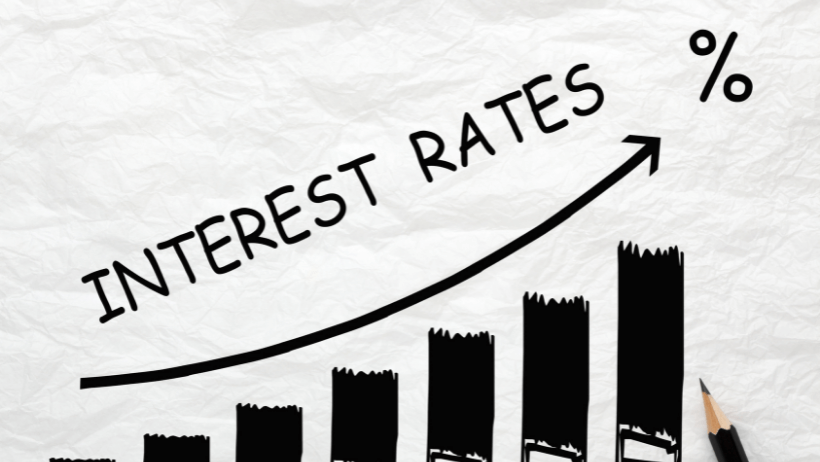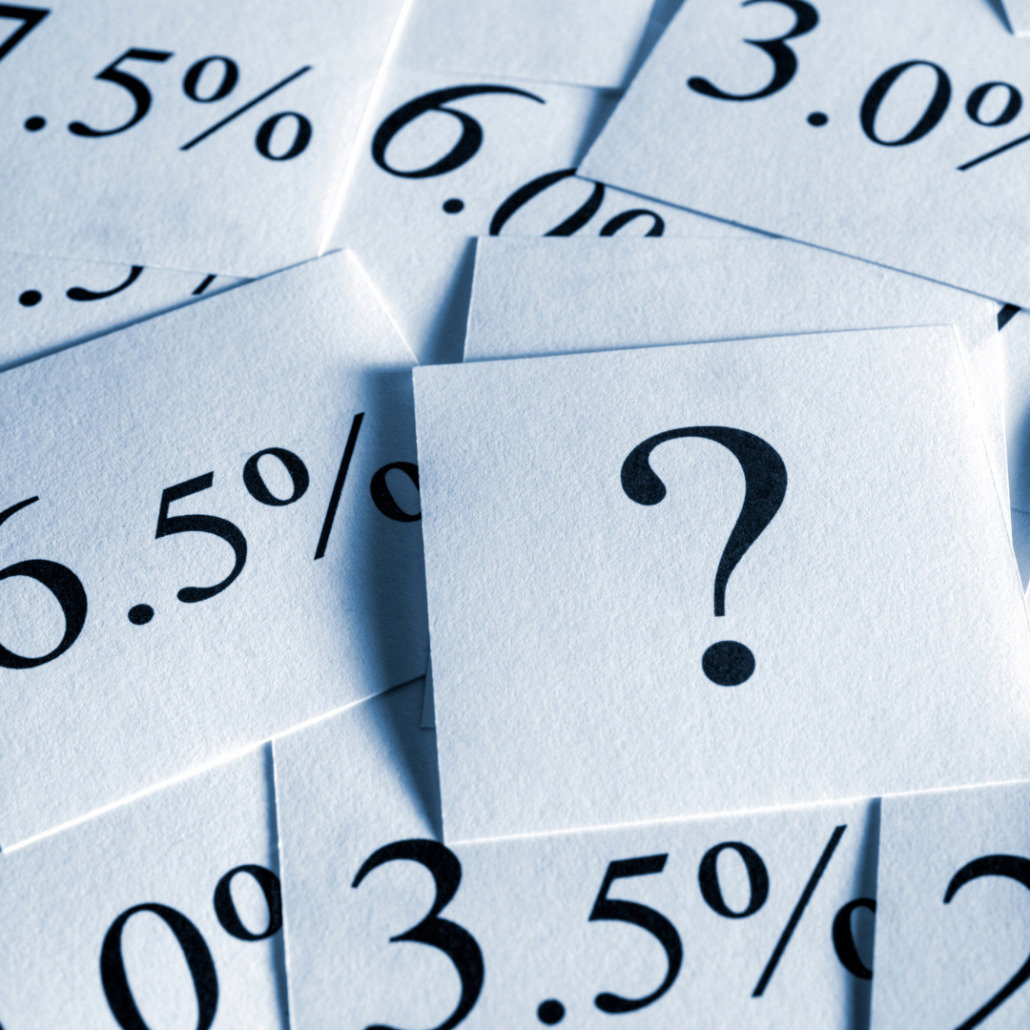In the past 10 to 12 years, we’ve seen two major crises: a global pandemic and a financial crisis. Both have brought about extraordinarily low interest rates as a policy response. But as we’ve moved through each of these events, we also start to wonder if higher interest rates lurk around the corner. You may find yourself worrying and asking questions about what higher interest rates mean for your life. Today we’ll talk about what happens exactly when the stimulus (i.e. low interest rates rise) is removed; Or will higher inflation mean interest rates rise?
It’s hard to know exactly when interest rates may rise. We can’t control timing, after all. The point is to understand what may happen. Plenty of macro forecasters are willing to weigh in on what the potential impacts of what higher interest rates may mean for the economy and financial markets. While you could listen to them ad nauseum, it might make you feel a little . . . nauseous. That’s why I wanted to take some time to break down how they may impact your financial situation without all the stressful “what and when ifs”.
Remember that low interest rates are typically used to stimulate an economy. To put it in basic terms: when interest rates go down, things like your ability to afford a mortgage or a car payment get easier, incentivising more people to purchase homes, cars, education, to do work on their homes, etc. For those that already have debts like a mortgage or student loans, lower interest rates also encourage you to look at refinancing those debts. Doing that lowers your monthly cost, putting more money in your pocket. In turn, you have more to save, invest, or spend, which also stimulates the economy. Hence, tons of wins.
Interest rates explained for debts
If interest rates rise, the primary “issue” for you comes when you plan to purchase something new like a new home or car. The other place you get hit is if you’re paying any of your debt at a variable interest rate. In other words, if you have a debt with a fixed interest rate and interest rates rise, there’s no change for you. But if an interest rate is “variable,” it will change with the direction of interest rates. This means your monthly debts might cost you more and impact how much you can save or spend. Let’s take a look at the different types of loans higher interest rates might impact:
Mortgages, Home Equity Loans and The Housing Market
Most mortgages have fixed rates of interest attached to them. But in some cases, interest rates reset on certain mortgage products after a period of time (e.g. a 10-year adjustable-rate mortgage). Double check to see which one you have so you understand if any risk exists there.
Interest rates pose a bigger risk for the housing market overall. As interest rates rise, new buyers will find purchasing a home with a mortgage more expensive than before, leading to a cooling in some demand. This may not necessarily be a bad thing. But it will mean that the market is less likely to be as “hot” as it has in the past.
Credit Cards
Interest rates are always high on credit card debt, but rising interest rates may mean the rates paid on credit card debt rise, too. You can find out by asking your credit card company or checking statements. Of course, if you don’t carry a balance, then this isn’t an issue for you, so even more reason to stay on top of payments!
Student Loans, Car Loans, & Other Personal Loans
Whether you have federal or private student loans, a car loan, or any other personal loans, be sure to understand what types of interest rates are on your debts. If you are not sure, call up the service of the loan and find out.

Interest Rates Explained: Financial Assets
For financial assets, the best way to think about this is captured by a quote by Warren Buffett: “Interest rates are like gravity,” when interest rates move up, they will typically place some pull on the value of all assets, but most definitely stocks and bonds (the two largest asset classes). Usually, interest rates move up because the economic picture is brighter or there is inflation; this generally means growth is better. Regarding the stock market, you have dual forces at play: better growth, but also higher interest rates, which weigh down valuations. Then , interest rates will also eventually slow growth (because you are buying less stuff and economic growth tends to slow somewhat).
Side note: This interplay is one of the reasons that stocks performed so well after the initial shock of the pandemic: interest rates fell, making stocks look cheap. Always remember the stock market is forward looking. The combination of lower interest rates and the market’s view that, eventually, things would get better led to the rapid recovery.
For bonds (or those bond ETFs or bond funds) you have, higher interest rates mean bond values go down. However, higher interest rates also mean that the interest paid on the bonds gradually goes up. The math is pretty straightforward. Higher interest rates = lower bond prices (no matter what type of bond). But new investors of bonds will enjoy higher returns on those bonds.
Like most things, interest rates do not have a universally negative effect on everything. It’s not all bad or all good. There are opposing forces at work, which generally indicates there will be some more volatility to experience. This is completely natural.
So, What should you do?
If you’re reading this thinking, “I don’t really need to do anything,” then you’re in an enviable spot. Of course, my response is, “Not so fast.” Double check that assumption. If you find you have some debts that are variable in nature, think about refinancing them into fixed rate options. And as for your investment plans or the value of your home, remember to focus on the longer term plans you have. Even when we’re faced with volatility, let your planning and life situations guide your choices—not market timing.
Read More: Creating a Long Term Investment Plan: Tune out the Noise!
Interested in receiving this content in our monthly newsletter? Sign up here!

Jim is a financial advisor and owner of Thinking Big Financial, Inc. Thinking Big Financial is a fee-only registered investment advisor offering financial planning and investment management services. Specializing in working with the LGBTQ Community.
Please read my legal disclaimer here.

